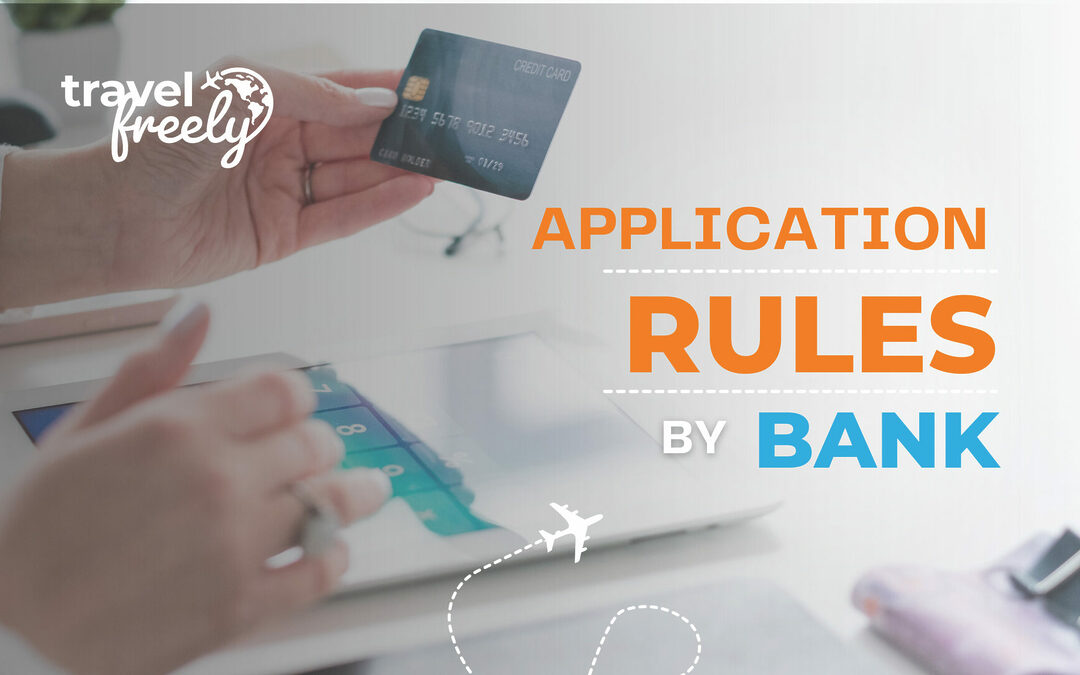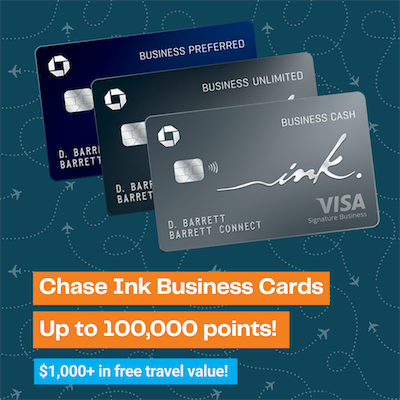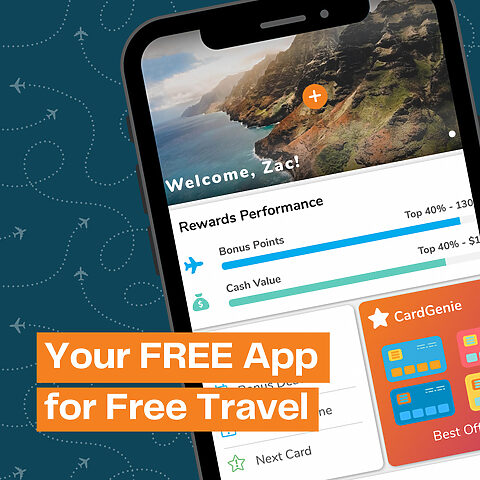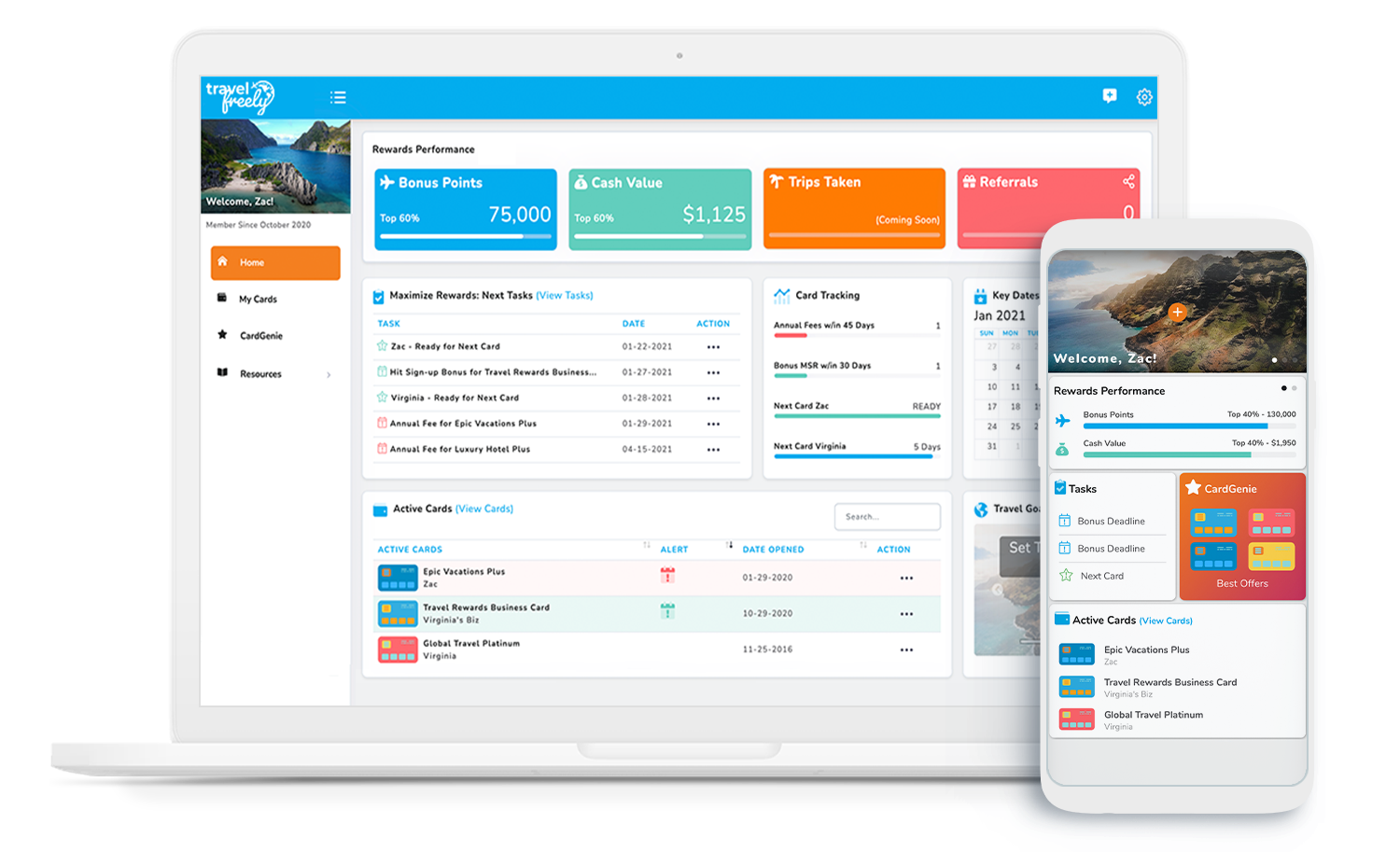There’s nothing worse than applying for a new credit card and finding out that you weren’t eligible for the card and/or sign-up offer.
Credit card issuers have some official and unofficial policies when it comes to their “rules” on getting approved for a certain credit card. As you apply for credit cards to earn points for free travel, you’ll quickly learn that each bank has a different set of rules. You might even find that each card for that bank has its own rules as well! It can be tough to keep track of it all!
The good news is that Travel Freely’s CardGenie tracks all of these rules for you. Just keep your My Cards page up-to-date, and let Travel Freely’s CardGenie do the rest. If you see the card on your CardGenie recommendations, then you are eligible for it.
Mental health warning: There’s no reason to read this article if you have Travel Freely. Our CardGenie already tracks all these rules for you. =) This is a huge game changer that saves you tons of time. It helps you see what you are eligible for and avoids mistakingly applying for a card you aren’t eligible to get. Don’t have Travel Freely? Sign up here. It’s 100% free.
In this post, I’m breaking down the application rules for the most popular travel rewards banks to make sure you have a place to go to check your eligibility before you sign up for a card.
Note: application rules can change at any time. Please be sure to reference the offer terms and conditions before you apply for a credit card. The information for these rules has been collected independently by Travel Freely. The content of this article has not been reviewed or provided by the card issuer.
American Express
Home to some of our favorite transferable currencies, American Express Membership Rewards points, American Express is probably best known out of all of these banks as being tailored to those with good credit. Assuming you have great credit, here are the application rules you should know about before you apply for your next card.
General Rules for American Express
1. “Once in a Lifetime” rule: you can earn the bonus on a card only once. Data suggests that Amex considers a “lifetime” to be 7 years.
Note: if you opened the card previously but did not earn the bonus, you’re still not eligible to earn the bonus.
2. Card limits: You can have a maximum of 5 American Express credit cards and 10 charge cards (pay over time cards) at any given time.
3. 2 per 90 days: You can open a maximum of 2 Amex credit cards in a rolling 90 day period.
4. “Family” rules? In addition to the “once in a lifetime” rule, Amex now applies additional “family” rules to several groups of consumer cards. These rules don’t apply to business cards. There is a “?” here because the terms of these rules include the phrase, “you may not be eligible.” So this may not be a rule that applies to every applicant. The good news is that Amex will let you know if you are NOT eligible before running the application.
-
- Platinum/Gold: You’re not able to get a welcome offer on the Gold, Platinum or Charles Schwab Platinum if you’ve previously had any of the three Platinum cards. The Morgan Stanley Platinum currently does not have these terms.
- Everyday: You’re not eligible for a welcome offer on the Everyday card if you’ve previously had the Everyday Preferred card.
- Cash back cards: You’re not eligible for a welcome offer on the Blue Cash Everyday card if you’ve previously had the Cash Magnet, Blue Cash Preferred or Morgan Stanley Blue Cash Preferred cards. You’re not eligible for a welcome offer on the Blue Cash Preferred card if you’ve previously had the Morgan Stanley Blue Cash Preferred card.
- Delta cards: You can get a welcome offer on any of the Delta cards provided you’ve never had a more expensive Delta card than the one you are applying for. So, for example, you’re eligible for a welcome offer on the Delta Reserve if you’ve had the Delta Gold, but you’re not eligible for a welcome offer on the Delta Gold if you’ve previously had the Reserve.
Amex Pop-up
In the world of points and miles, Amex is known as having something called “Amex Pop-Up Jail.” Essentially, when going to apply for a new American Express credit card, you may find that you see a little pop-up saying you are ineligible for the card. This can happen even if you are technically eligible for a card.
There is a bit of mystery as to why this pop-up happens. My only theory is that it happens if you are: a) not eligible for a card due to the application rules; or b) have other Amex cards that you rarely use. Amex sees you as a poor customer and is not willing to extend more credit to you.
For a deep dive on getting out of pop-up jail, please see a great post by Miles to Memories here.
Marriott Bonvoy Cards
When SPG merged with Marriott, some crazy rules were put in place to cover the Marriott suite of cards. This includes cards from Chase and Amex, which adds to the confusion. We have all these rules accounted for in the CardGenie. So most of you don’t even need to worry about these rules. However, if you want a deep dive and chart on eligibility, please see Frequent Miler’s article here.
Bank of America
2/3/5 Rule
You will likely only be approved for a maximum of 2 new cards in a 60-day period, 3 new cards in a 12-month period, and 5 new cards in Bank of America credit cards within a 24-month period. You will not be approved for a new BOA card if you currently have 5 active BOA cards. Note: These “rules” are not posted on BoA’s site. This only applies to Bank of America cards and not all cards from all issuers.
Extra rules?
Recent reports indicate a new 7/12 and 3/12 rule that applies to all new cards you have opened from any issuer. There’s a nuance based on having a bank account with Bank of America. The 3/12 rule means that if you do NOT have a bank account with Bank of America, you will be denied if you have opened 3 new cards in the past 12 months. If you DO have a bank account with Bank of America, the limit is 7 cards from any bank in the past 12 months. These rules appear to impact personal card applications only. This rule may seem similar to those familiar with Chase’s 5/24 rule. Additionally, with the Alaska Airlines Visa® credit card, you must wait 24 months after closing your card before you can be approved for the same card and bonus.
Welcome Bonus
Bank of America doesn’t have known rules on getting the same card again and another welcome bonus. However, you must be eligible based on the rules above.
Barclays
There aren’t any hard and fast rules with Barclays cards, but there are a few things to keep in mind from reports and data points.
6 months – Typically, you have to wait 6 months from account closing before you can earn a bonus on the same card.
6/24 rule – Barclays may not approve an application if you’ve opened 6 or more credit cards in the last 24 months.
Spending habits – Your spending habits on other Barclays’ cards may be taken into consideration when determining your eligibility on new card applications. This means that Barclays wants to see consistent spending on any cards you currently have with them if they are to think positively about approving a new account for you.
Capital One
Another one of our favorite banks when it comes to travel reward credit cards. Capital One has been known to be tough on credit card applications without much rhyme or reason, even if you have excellent credit. We do know the following info that is good to know before you sign up for your next Capital One card.
Update 8/14/23: We’ve noticed new rules on all Capital One personal cards that have a signup bonus. Rules are stating, “Existing or previous cardmembers are not eligible for this product if they have received a new cardmember bonus for this product in the past 48 months.”
2 card max – You can have a maximum of 2 Capital One personal cards at any given time (excluding co-branded cards). Unofficially, one exception to this has been the Capital One Venture X Rewards Credit Card. People have gotten this as their third Capital One card.
1/6 rule – You can only open 1 Capital One credit card every 6 months.
Welcome bonus eligibility – You may be eligible to get the same card and bonus, even if you have the card open. Update 8/14/23: This may be true for business cards but no longer for personal cards. For Capital One personal cards that have a signup bonus, rules are stating, “Existing or previous cardmembers are not eligible for this product if they have received a new cardmember bonus for this product in the past 48 months.”
Extra note: Unlike other banks that normally pull one credit bureau when doing their hard credit inquiry, Capital One will go through all 3 credit bureaus.
Chase
Home to our #1 recommended travel rewards card for beginners (and really, everybody else), Chase is best known as being the bank that you should prioritize over all other banks—partly due to their application rules! Chase also has the most famous rule – the 5/24 rule.
General Rules
5/24 rule – Chase will deny your personal or business credit card application if you’ve opened 5 or more credit cards (via any card issuer) in the last 24 months. (Tip: the Travel Freely app has a free and easy 5/24 tracker!) For more on this rule, here’s an article on 5/24 and how to track it with Travel Freely.
Business cards and 5/24 – Most business cards do not count towards the 5/24 rule. More specifically, Chase business cards do not count towards your 5/24 total, but the 5/24 rule does apply as an application rule for business cards.
- Example #1 – You will be approved for a business card from American Express if you are 5/24 or more.
- Example #2 – You will be denied for a Chase business card if you are 5/24 or more.
- Example #3 – You can be approved for a Chase business card if 4/24, and you will stay at 4/24 after approval because Chase business cards do not count towards 5/24.
2/30 rule – Chase normally will not approve you for more than 2 personal cards in a 30 day period.
1/30 rule – Typically, you can open a maximum of 1 business card every 30 days (some exceptions may apply).
Signup bonus re-eligibility – Besides the Sapphire and Southwest rules below, Chase allows you to earn the signup bonus again on most cards if it has been 24 months since you earned the bonus and if you do not currently have the card.
Same day applications – Recently, multiple Chase applications on the same day for the same person have resulted in the second application getting kicked out as the system believes it’s a “duplicate” of the first.
Chase Sapphire Rules
All general rules above apply. Plus, the Chase Sapphire Preferred or Chase Sapphire Reserve are considered part of a family. You can get the same card and bonus again IF a) it’s been 48 months after having received the bonus AND b) you no longer have the card open.
Chase Southwest Personal Cards
All general rules above apply. Plus, similar to the Chase Sapphire cards, the Chase Southwest personal cards are considered a family, so you cannot have received a bonus from any personal Southwest card in the last 24 months; and you cannot currently have any personal Southwest card.
In other words, if you have had a Southwest personal card in the past, you can only get that same card again IF a) it has been 24 months since you received a bonus (normally max 28 months since the card opened date); and b) You do not currently have the card.
Chase Ink Business Cards
All general rules above apply, but the awesome Chase Ink Business cards are not considered part of a family. This means you can get and hold all 3 Ink cards (and all 3 signup bonuses) for each Ink card. Plus, people have been able to get approved for the same Ink card if they have multiple businesses (using a different Tax ID – EIN on the application). Read more about these rules, how to apply, and most recent offers on Chase Ink Business cards.
Citi
Citi has general rules and specific rules based on their card or family of cards. They also don’t have a specific limit on how many Citi cards you can have. It tends to be more about how much overall credit they’ve extended across your Citi accounts.
General Rules
Frequency of personal cards: 1/8 and 2/65 – You will be approved for a maximum of 1 card every 8 days, and a maximum of 2 cards every 65 days.
Frequency of business cards: 1/95 – You can only apply for 1 business card every 95 days.
48-month rule for ThankYou Cards
For the Citi ThankYou cards, to get the same card again, it must be 48 months since you last received a new account bonus. This is new as of 5/2023. Previously, downgrading and closing cards were known to impact your new bonus eligibility.
48-month AAdvantage Cards Rules
For Citi’s AAdvantage cards that earn American Airlines miles, you must wait 48 months after earning a welcome bonus to get the same card and bonus. This applies to Citi AAdvantage Executive World Elite Mastercard, the Citi AAdvantage Platinum Select World Elite card, the American Airlines AAdvantage® Mile Up®, and the CitiBusiness® / AAdvantage® Platinum Select® Mastercard®.
Discover
You can have a maximum of 2 Discover cards; first card must be a minimum of 1 year old prior to getting approved for a second card.
No known rule to get the bonus again, but you need to wait 1 year after applying for a card before you can get the same card and bonus.
US Bank
Card limits for US Bank is based more on the overall credit you have with them instead of the number of cards.
People have been known to get the same card again after one year of holding the card.
One very specific rule applies to the US Bank Altitude Reserve. You must have a banking relationship with US Bank to be eligible to be approved. You can earn a bonus on a card more than once.
Wells Fargo
Card limits for Wells Fargo is based more on overall credit you have with them instead of the number of cards.
Your banking relationship may be important in getting approved for a Wells Fargo card.
You may be limited to one Wells Fargo credit card in a 16 month period.
Bottom Line
Reading and making sense of these rules can be exhausting. I needed a nap myself after writing this article! I am glad that Travel Freely tracks all of these rules with our CardGenie Recommendations. While this article can be a good reference, no one really needs to read it if you have Travel Freely!




